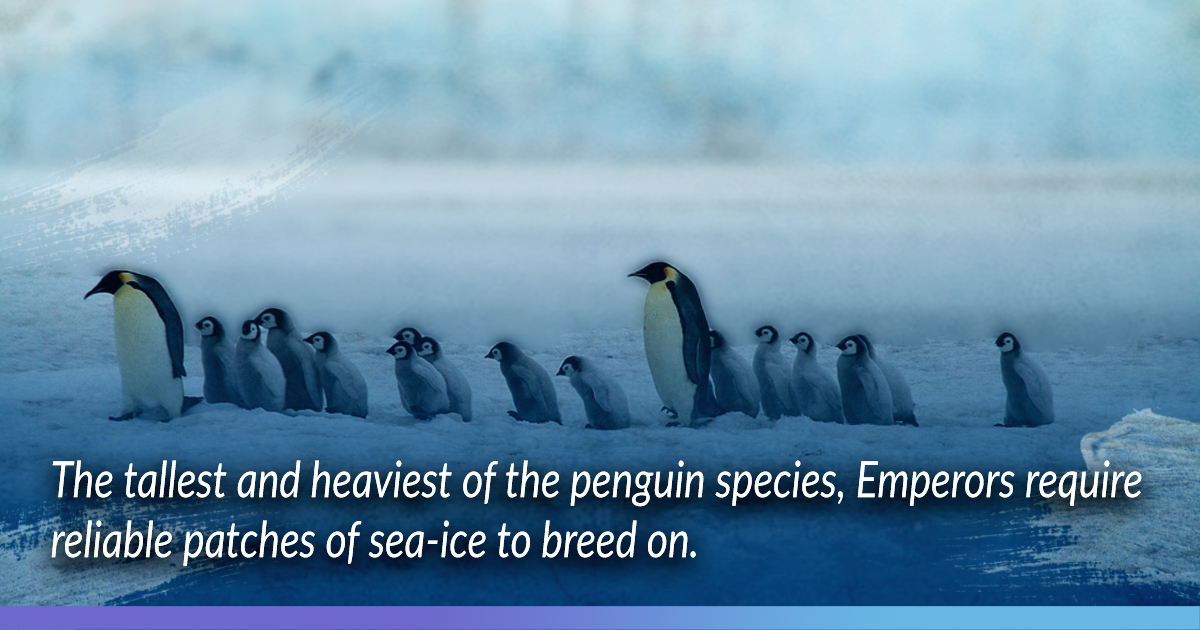A new study has found that since the start of the year virtually not anything has hatched on the second biggest breeding grounds for emperor penguins in Antarctica. For the past three years, the scenario has been the same.
At a breeding site at Halley Bay, yearly, around 15,000 to 24,000 breeding pairs of these emperor penguins usually flock. Considered a safe place, in this century Halley Bay should remain cold despite global warming. But as reported by a study in Antarctic Science, almost none of these penguins have been there since 2016.
Although the population of breeding pair has significantly increased at a nearby breeding ground, the author of the study revealed that it is not even near the amount that is missing in Halley Bay.
Breeding failure on Halley Bay
“We’ve never seen a breeding failure on a scale like this in 60 years. It’s unusual to have a complete breeding failure in such a big colony,” said author of the study, Phil Trathan, head of conservation biology at the British Antarctic Survey.
Trathan further said that 8% of emperor penguin population of the world normally breeds at Halley Bay.
Emperor penguins are the largest species of penguins, weighing around 40 kg. They are black-and-white with yellow breasts and ears, and live for about 20 years. While breeding, the male incubates the pair’s egg. They usually breed in the harshest of winter conditions.
What scientists blame is the significant decline on climate and weather conditions breaking the “fast ice” apart. Fast ice refers to sea ice which is connected to the land, where these penguins stay and breed. One per pair, they incubate the eggs and look after the chicks, on ice. The study found that there was no breeding in Halley Bay in 2016 and 2017. In 2018, there was just some.
Having housed a couple thousand pairs of emperor penguins, the nearby Dawson-Lambton breeding area increased to 11,117 pairs in 2017 and 14,612 pairs in 2018, The Telegraph reported.
Trathan said that even though this is encouraging, not all the Penguins have gone to Dawson-Lambton yet, and it is not enough to make up for what was lost at Halley Bay.
However, the fact that is actually troubling is not that the Penguins have moved to Dawson-Lambton, but the fact that Halley Bay was considered by scientists to be a climate change refuge “where in the future you expect to always have emperors.”
According to Davis Ainley, a marine ecologist and penguin expert at the consulting firm H.T. Harvey & Associates, “alternate breeding sites likely will become harder to find.”
Trathan said that a very strong El Nino has resulted in melting large chunks of sea ice, exposing the fast ice to wind and waves, making the home for breeding unstable. Cyclical warming of the central Pacific, El Nino is a natural process that changed weather across the world. Trathan also said that it is not certain whether human-caused warming is a factor.
The global population of emperor penguins, according to a 2014 study by Jenouvrier, might fall by at least 19% by the year 2100 due to climate change.
Trathan said that the failure of the breeding colony “is a warning of things that might become important in the future.”













